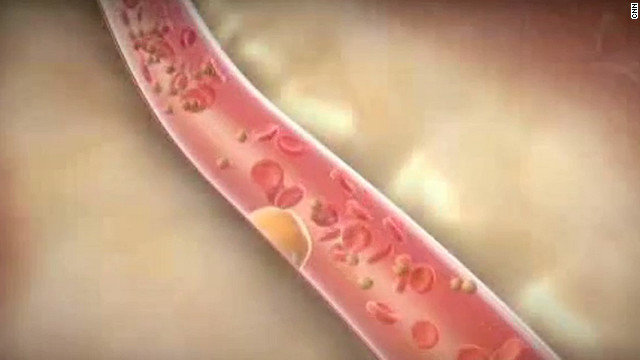The drug could prove to be more effective than statins
A new, experimental cholesterol-fighting drug is creating quite a buzz among researchers and other experts, prompting some to use words such as “dramatic,” “breakthrough” and “game changing,” to describe early-stage clinical trial results.
If these initial results pan out in larger trials, the drug could prove to be more effective than statins, the widely prescribed drugs which have been very successful in lowering levels of LDL – or bad cholesterol.
Researchers have known for some time that when the protein PCSK9, which stands for proprotein convertase subtilisin/kexin 9, binds to LDL receptors on the liver, it compromises the organ’s ability to filter the bad cholesterol from the blood.
Too much LDL cholesterol circulating in the blood can lead to the thickening of artery walls, making them less flexible and therefore impairing their function and increasing the risk of heart disease.
In this phase one clinical trial, which is designed to determine if a drug is safe, researchers found that using a monoclonal antibody (lab-produced protein) called REGN727, was not only safe, but effectively blocked PCSK9 and therefore signficantly reduced bad cholesterol in healthy patients as well as those also taking the popular cholesterol-lowering drug Lipitor.
Earlier studies had shown this effect in primates, but this new study, published Wednesday in the New England Journal of Medicine, provides the first clinical trial data for testing the drug on humans. This new drug is being developed by Regeneron Pharmaceuticals and Sanofi, who funded the research.
“Wars for PCSK9 are far bigger than the statin wars,” said Dr. Evan A Stein, lead author of the study and researcher at the Metabolic and Atherosclerosis Research Center in Cincinnati, Ohio. “This is a hot research area and everybody is so close together.”
Other companies including Amgen, Merck & Company, Novartis and Pfizer, are also hot on the trail developing their own PCSK9 inhibitor drugs. Stein said.
Additional results for PCSK9 inhibitor drugs are expected to be presented at the annual American College of Cardiology meeting which begins Saturday in Chicago, he said.
The REGN727 study included three trial arms. Two arms used 72 healthy volunteers who were either injected with a single dose of the drug in increasing amounts to test for side effects, which is the purpose of a phase one clinical trial. A third arm included 21 people with a family history of high cholesterol, and 30 people with nonfamilial high cholesterol. All of those subjects were also receiving treatment with the statin Lipitor.
A control group of subjects with nonfamilial high cholesterol was treated only with a special diet. None of the subjects who received REGN727 discontinued the study because of adverse effects, and the subjects who received REGN727 had a striking reduction of 60 to 65% in LDL cholesterol, according to Stein.
Stein characterized the results of the trial as “pretty dramatic.”
via CNN – Ann J. Curleyᔥ
Bookmark this page for “Experimental cholesterol drug” and check back regularly as these articles update on a very frequent basis. The view is set to “news”. Try clicking on “video” and “2” for more articles.








